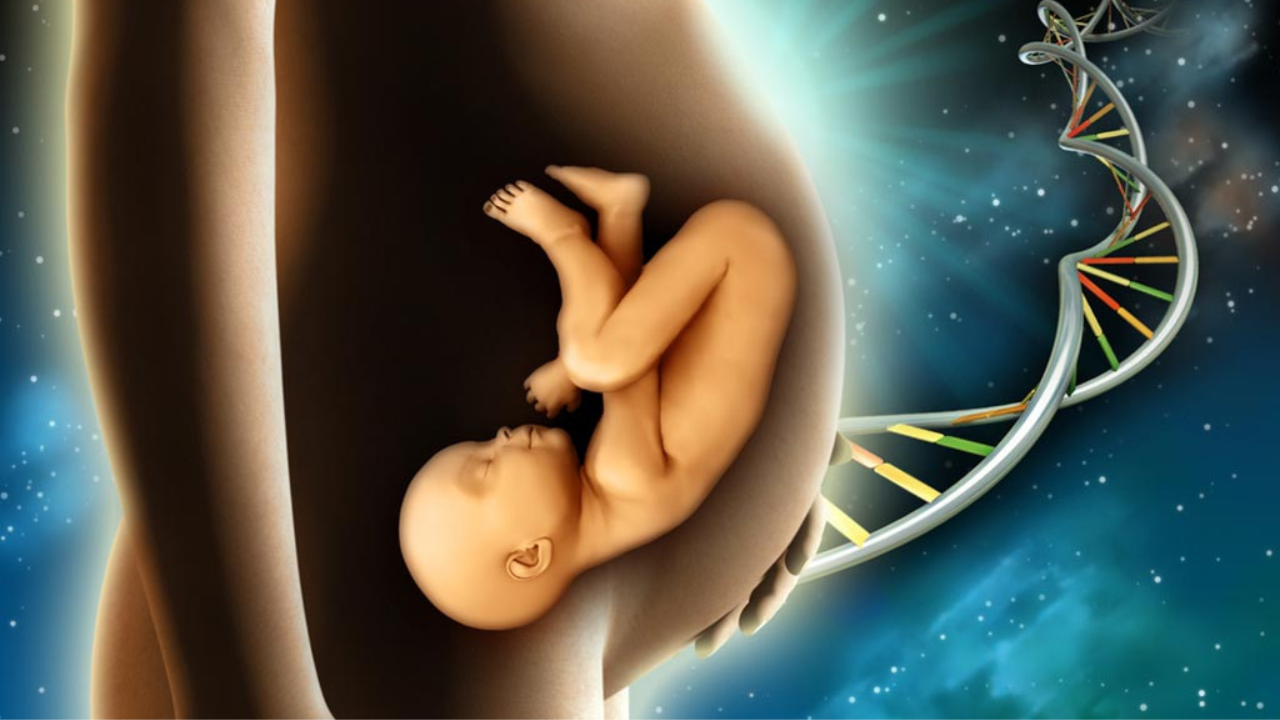Navigating the Dark Night of the Soul
Ashley Michaud • December 29, 2023
Navigating the Dark Night of the Soul: From St. John of the Cross to Psychology, the Profound Exploration of the Human Psyche and Hekate's Guidance
As I sit here reflecting on my journey, I'm reminded of a timeless theme that traverses both ancient poetry and modern psychology: the Dark Night of the Soul. This profound exploration of the human psyche has been a constant companion throughout my life—a path marked by turmoil, despair, and an overwhelming sense of emptiness.
Centuries ago, St. John of the Cross painted a vivid picture of this darkness through his haunting verses in the poem "Dark Night of the Soul." His words encapsulated the harrowing journey of the soul, where all familiar sources of solace and meaning seemed to fade away, leaving behind a suffocating darkness. Yet, paradoxically, this abyss was seen as a transformative path toward union with the divine—a purification process stripping away the superficial layers to reveal the true essence of the soul.
In my own experience, this journey echoed the psychological descent into the depths of my unconscious mind. Influential psychologists like Carl Jung and Stanislav Grof delved into this dark realm, seeing it as an opportunity to confront repressed aspects of the self. They spoke of integration and transformation, emphasizing the potential for profound healing amid this seemingly endless night.
But amid this journey, I found a guiding presence—an ancient deity named Hekate. In Greek mythology, Hekate presides over transitions, symbolizing the crossroads between phases of life. She is a guardian of thresholds, invoked during times of personal upheaval, including the Dark Night of the Soul. As a psychopomp, she serves as a guide through the underworld—the depths of the unconscious—ushering souls toward enlightenment and wisdom.
The convergence of spirituality, psychology, and mythology is where the true essence of this journey lies. Modern practitioners, therapists, and spiritual mentors often draw from the wisdom encapsulated in the Dark Night and Hekate's guidance to aid others in navigating their own inner struggles.
It's akin to an alchemical process—transforming the base elements of oneself into spiritual gold. The fusion of these disciplines exemplifies the immense transformative potential inherent within us.
This Dark Night resonates as a profound archetype of human experience, reminding us that amidst the darkness lies an opportunity for growth—a gateway to personal and spiritual enlightenment.
So, as I continue on this journey of recovery and self-discovery, I find solace in the wisdom of St. John's verses, the insights of psychology, and the guiding light of Hekate. It's a testament to the resilience of the human spirit—a reminder that even in the darkest moments, there exists the potential for profound transformation and newfound wholeness.
Diving Deeper into The Soul
The Dark Night of the Soul is a profound spiritual and psychological journey characterized by inner turmoil, existential crisis, and a sense of spiritual emptiness. It's often described as a transformative process that individuals may undergo in their quest for spiritual growth and enlightenment. While the experience can vary from person to person, there isn't a universally fixed set of stages. However, based on various interpretations and accounts, here's an outline that often illustrates the progression through this challenging journey:
- Awakening or Triggering Event: This initial stage can be sparked by a significant life event, existential questioning, a crisis, or a sense of disillusionment. It's a moment of awakening where an individual starts questioning the meaning and purpose of life beyond the superficial.
- Initiation of Spiritual Desolation: This stage marks the beginning of the descent into darkness. The individual experiences a profound sense of spiritual emptiness, detachment from previous sources of meaning, and a feeling of being lost or disconnected from oneself and the divine.
- Struggle and Inner Turmoil: Here, the individual confronts intense inner conflicts, emotional distress, and feelings of despair. It's a period marked by emotional upheaval, doubt, and a sense of being spiritually adrift.
- Purification and Surrender: This stage involves a deep inner purification process. It's about letting go of attachments, ego-driven desires, and facing the shadows within. Surrendering to the process becomes essential as the individual navigates through their deepest fears and insecurities.
- Illumination and Insight: After enduring the darkness, there comes a moment of profound insight and clarity. It's a breakthrough where the individual gains deeper spiritual understanding, experiences moments of illumination, and begins to perceive the interconnectedness of all things.
- Union and Integration: In this final stage, the individual achieves a sense of union with the divine, a deeper connection with their true self, and a newfound integration of the spiritual insights gained throughout the journey. There's a sense of wholeness, inner peace, and alignment with a higher purpose.
Diving deeper into the soul, psyche, and spiritual realms involves exploring the inner depths of one's being beyond the surface level of existence. It's a journey of self-exploration, introspection, and confronting the hidden aspects of the self. This process often involves practices such as meditation, introspection, therapy, spiritual teachings, or other transformative modalities aimed at understanding the subconscious, spiritual essence, and interconnectedness of existence.
It's about peeling back the layers of conditioned beliefs, ego identifications, and societal influences to uncover the authentic self. It's embracing the complexities of emotions, thoughts, and experiences while seeking a deeper understanding of the spiritual nature of existence. This journey isn't always comfortable; it can involve facing one's fears, unresolved traumas, and shadow aspects, but it ultimately leads to profound growth, self-awareness, and spiritual e
volution.
Tapping into The Triple Moon Goddess
Hekate, an ancient Greek goddess, holds significant relevance in the context of the Dark Night of the Soul, especially when explored through psychological perspectives like those presented by thinkers such as Thomas Moore. Moore, a psychotherapist and author, often incorporates mythology and spirituality into his psychological frameworks.
Hekate is traditionally associated with various aspects that align with the profound inner journey of the Dark Night:
- Goddess of Transitions and Crossroads: Hekate is revered as a guardian of thresholds, symbolizing the liminal spaces between phases of life. Her significance lies in guiding individuals through times of transition or crisis, much like the profound shifts experienced during the Dark Night of the Soul. This transitional aspect of her archetype resonates with moments of personal upheaval, where individuals navigate the liminality between old and new selves, beliefs, or existential understandings.
- Psychopomp and Guide to the Underworld: As a psychopomp, Hekate guides souls through the depths of the unconscious, akin to the psychological descent into the darker realms of the psyche during the Dark Night. She aids individuals in navigating the shadows, confronting repressed aspects of the self, and emerging with newfound wisdom—a parallel to the transformative aspects of psychological integration and growth.
- Goddess of Transformation and Wisdom: Hekate is associated with transformational processes and wisdom. In the context of the Dark Night of the Soul, her presence signifies the potential for profound personal and spiritual transformation. This aligns with the themes of inner alchemy, where the base elements of the self undergo metamorphosis, leading to spiritual growth and enlightenment.
Thomas Moore, drawing upon Jungian psychology and archetypal frameworks, often emphasizes the importance of mythological figures like Hekate in understanding the human psyche. He considers mythology as a rich source of symbolic language that can help individuals navigate their inner landscapes during times of crisis or spiritual exploration.
In Moore's view, incorporating the wisdom of figures like Hekate into the therapeutic process allows individuals to connect with deeper layers of their psyche. Mythological symbols and archetypes serve as guiding forces, aiding individuals in making sense of their experiences and integrating the darker, unconscious aspects of the self. This integration can lead to a more profound sense of self-awareness, healing, and personal transformation—similar to the objectives pursued during the Dark Night of the Soul.
More From The Experts
Thomas Moore's perspectives on the Dark Night of the Soul are deeply influenced by his background in Jungian psychology, mythological studies, and his exploration of spirituality. In his book "Dark Nights of the Soul: A Guide to Finding Your Way Through Life's Ordeals," Moore delves into the transformative potential of these dark periods in life. He suggests that these times of deep suffering or spiritual crisis can offer profound opportunities for growth, self-discovery, and spiritual development. Moore emphasizes the importance of embracing these dark periods as integral parts of the human experience, rather than merely seeking to overcome or escape them.
He encourages individuals going through a Dark Night to engage in soulful practices such as journaling, reflective contemplation, engaging with art or literature, and exploring one's dreams. Moore suggests that these practices can help individuals connect with their inner worlds, gain insights, and develop a deeper understanding of themselves, ultimately leading to a more meaningful and integrated life.
Carl Jung, a pioneering figure in psychology, explored the concept of the Dark Night of the Soul in various ways. Jungian psychology emphasizes the integration of unconscious elements into consciousness for psychological growth and individuation. Jung viewed dark periods as crucial moments for confronting the shadow—the repressed or unknown aspects of the self. He believed that acknowledging and integrating these darker aspects were essential for personal development and achieving wholeness.
Jungian therapy involves techniques such as dream analysis, active imagination, exploring archetypes, and engaging with the unconscious through symbols and metaphors. These methods aim to assist individuals in navigating the depths of their psyche, confronting inner conflicts, and finding meaning amidst turmoil.
Apart from Moore and Jung, various specialists and therapeutic modalities assist individuals in moving through the Dark Night of the Soul:
- Transpersonal Psychologists: These professionals specialize in exploring spiritual experiences, inner transformation, and the integration of spirituality into psychological healing.
- Mindfulness-Based Therapies: Practices like mindfulness meditation and mindfulness-based cognitive therapy can help individuals develop a non-judgmental awareness of their experiences, providing a sense of presence and acceptance during difficult times.
- Depth Psychotherapists: Therapists utilizing depth psychology (inspired by Jungian concepts) focus on uncovering unconscious patterns, dreams, and symbols to facilitate personal growth and healing.
- Spiritual Guides and Mentors: These individuals often draw upon spiritual teachings, practices, and wisdom traditions to support individuals through their spiritual crises, providing guidance and a broader perspective.
- Expressive Therapies: Art therapy, music therapy, and movement therapy allow individuals to express and explore their inner experiences creatively, aiding in self-expression and emotional processing.
Overall, specialists and therapeutic approaches aim to provide support, tools, and guidance for individuals traversing the Dark Night of the Soul, helping them navigate this profound journey towards healing, self-discovery, and transformation.
Call to Action
Are you navigating your own Dark Night of the Soul or seeking guidance through inner turmoil? Connect with me for personalized coaching sessions.
Together, we'll explore your journey, integrate psychology and spirituality, and uncover transformative pathways towards healing and self-discovery.
For Your Homework:
- St. John of the Cross. (16th century). Dark Night of the Soul.
- Jung, C. G. (1933). Modern Man in Search of a Soul. Harcourt Brace.
- Moore, T. (Year). Dark Nights of the Soul: A Guide to Finding Your Way Through Life's Ordeals.

Unlock the wisdom of ancient shamanic teachings to break free from emotional struggles and reclaim your inner peace. In this in-depth guide, explore six powerful principles that can transform your mindset, release past pain, and align you with nature’s healing energy. Discover actionable steps, rituals, and exercises to integrate these teachings into your daily life with joy and clarity. Start your journey to emotional freedom today!

Discover the profound role algae and fungi have played in shaping life on Earth, sustaining ecosystems, and enhancing human health. From nutrition and medicine to environmental restoration and consciousness expansion, these ancient organisms continue to offer us powerful benefits. Learn how to honor, use, and integrate algae and fungi into your daily life for better health, sustainability, and spiritual connection.

Psychedelics open the door to profound healing, but true transformation happens through integration. This article explores the importance of grounding after a psychedelic journey, the Ayurvedic layers of being, and practical steps to support your mind, body, and spirit. Discover why integration is your sacred responsibility and how working with an integration coach can help you embody lasting change.

Sacred tobacco, known as Rapé or Mapacho, has been used for centuries by indigenous tribes for healing, prayer, and spiritual connection. Unlike commercial tobacco, which is processed for addiction, this medicine is prepared with reverence and intention. Learn about its benefits, ceremonial use, right relationship, and how to integrate it into your spiritual practice.

Embrace the Sacred Journey of Gentle Birth: A Guide to Pain-Free, Ecstatic, and Empowering Birth Experiences
This post explores the transformative potential of gentle birth, including pain-free, ecstatic, orgasmic, freebirth, and water birth. By tapping into the wisdom of hypnobirthing, Ina May Gaskin’s techniques, and powerful affirmations, you’ll discover how to create a peaceful, empowering environment for your birth. We walk you through the stages of labor, offering a step-by-step guide to help you prepare mentally, emotionally, and physically for a calm and beautiful birth experience. Learn how to harness your body’s wisdom, embrace the sensations of labor with trust, and welcome your baby into the world in a way that is sacred and transformative.

Explore the fascinating world of DMT in this comprehensive article, where we delve into its history, effects, benefits, and the role it plays in psychedelic healing. Whether you're curious about DMT's spiritual significance, its therapeutic potential, or its powerful role in consciousness expansion, this article provides insightful information backed by scientific research and personal experiences. Learn how DMT may help in unlocking deeper states of awareness and healing, and how it fits within the broader context of natural medicine and psychedelic integration.

Discover the ultimate guide to holistic and natural diapering! Learn the history of diapering, explore eco-friendly options like cloth diapers and elimination communication, and find DIY recipes for baby wipes, rash creams, and powders. Perfect for moms looking to reduce waste, save money, and keep baby’s skin naturally healthy. Written by a second-time mom with firsthand experience, this guide is packed with tips, tricks, and inspiration for embracing sustainable diapering 🌿💚

The postpartum period is a sacred and transformative time, offering a chance to bond deeply with your baby, restore your body, and honor your spiritual journey into motherhood. From placenta rituals and cord cutting to the importance of rest and breastfeeding, this comprehensive guide explores natural practices from around the world that promote healing, connection, and empowerment. Whether you’re a first-time mom or welcoming another child, discover meaningful rituals, cultural wisdom, and practical tips to nurture yourself and your growing family. Embrace the fourth trimester with love, self-care, and support.

Finding out your baby is in a breech position late in pregnancy can be overwhelming, especially if you’re planning a home birth. But with a blend of natural techniques, trusted support, and an understanding of breech birth history, there’s hope and empowerment on this journey. 🧡
I recently faced this challenge at 35 weeks, leaving a routine visit with my midwife in tears as I learned about the medical interventions often recommended for breech positioning. But after speaking with my doula and researching natural approaches, I found a renewed sense of calm and purpose.
In this article, I share my story, a holistic guide on breech positioning, and insights into traditional methods that honor both mom and baby. From Spinning Babies techniques to affirmations and visualizations, I hope this piece brings clarity and comfort to anyone on a similar path. 🌿✨
🔗 Read more about navigating breech with confidence!

Discover the essentials of ethical and impactful psychedelic retreats in this comprehensive guide, covering key practices for retreat leaders and attendees alike. Learn about preparation, integration, and the importance of maintaining integrity in the world of plant medicine ceremonies, including mushroom, DMT, ayahuasca, iboga, and bufo retreats. With 20+ years of experience in psychedelic integration coaching, this article sheds light on the growing popularity—and challenges—facing these transformative experiences. Find guidance on due diligence, ethical considerations, and creating a truly healing, heart-centered journey that respects indigenous traditions and the sanctity of plant medicine.


